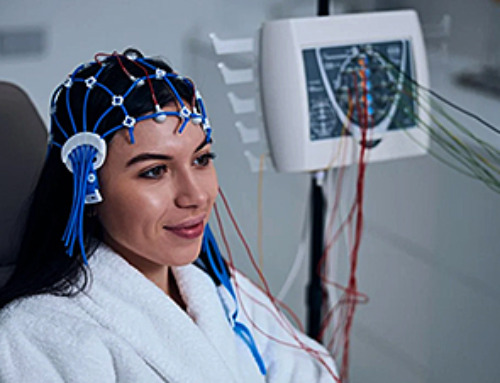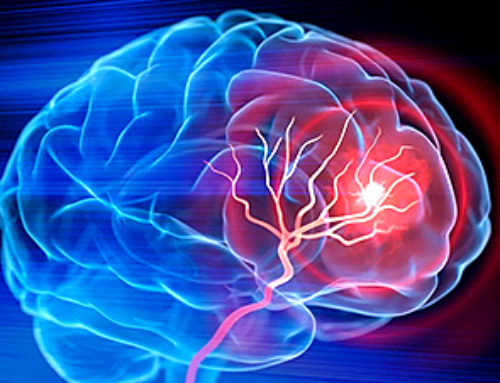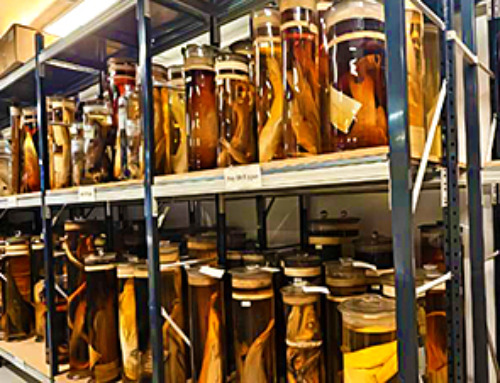Nanotechnology represents the future of personalised medicine, especially in treating diseases like cancer, says a top Swiss researcher in the field. What can the technology do, and how close does it come to science fiction scenarios?
For some, the term “nano” conjures strange scenarios out of science fiction. But nanoscience simply refers to a technique for manipulating particles on a “nano” scale, such as molecular. Rather than scaring us, the technology should give us hope, argues Cornelia PalivanExternal link, Professor of Physical Chemistry at the University of Basel and a member of the Swiss Institute of Nanotechnology.
SWI swissinfo.ch: Do you think the scenario presented in this science fiction story is likely, and that nanotechnology injected into the human body could somehow take over and manipulate a person?
Cornelia Palivan: I would say not. We are very, very far from that scenario. So-called “nanobots” are science fiction for the moment – something fascinating, but remaining surreal. One might reflect, at most, on the danger of engineering nanoparticles containing toxic compounds, or of potentially lethal chemical and biological weapons being developed by governments, but we are talking about poisons here and that has nothing to do with size. The label “nano” does not define a technology as good or bad, but instead identifies a way of solving problems at a molecular level. This can be extremely useful, especially in medicine.
SWI: How so? What does it mean to develop nanotechnology today?
C.P.: My research group and I are working on the implementation of nanotechnology in various fields, from medicine to ecology and food science. We are doing this through the development of so-called “bio-hybrid materials”, obtained by combining biomolecules – such as proteins and enzymes – with synthetic materials in very small quantities. We are talking about nano-scale compartments (very small capsules) that do not exceed 100 nanometres in radius and within which we encapsulate, for example, enzymes that will act when these compartments are absorbed by the body.
One of the problems in medicine is that the biomolecules contained in drugs quickly lose their effectiveness. With bio-hybrid materials as our nanocompartments, it is possible to maintain the full functionality of proteins and enzymes and ensure that they carry out their activities. Moreover, thanks to these synthetic “nano capsules”, the biomolecules are protected and remain intact.
SWI: Is nano-medicine more effective than traditional drugs?
C.P.: Yes, but it’s not just a question of efficacy. In medicine, the biggest challenge today is to also make drugs safer, by reducing side effects. Anyone can go to the pharmacy and buy different coloured pills to treat different diseases. But the question is: what’s in them? The idea is that the doctor of the future will not only prescribe medicine to his or her patients but will also make sure that the medicine works in the right place and is not toxic to other parts of the body. This is what everyone expects when they go to the pharmacy. From this point of view, nanotechnology can help, because it allows these carriers to be “engineered”.
Working with nanotechnology means trying to copy nature to understand how a specific protein acts inside a cell and replace it where necessary if it is missing due to a disease. If we resort to the classic solution – the introduction of molecules in powder form, as is the case with most drugs – the risk is that in some situations the substances will not make it into the cells because they are too big to be absorbed.
A well-known example is vaccines based on messenger RNA technology [such as those developed against Covid-19]. Ribonucleic acid or RNA is embedded in nanoparticles that act as carriers named “vectors”. These vectors protect the molecule and transport it to where it is needed. Being chemically engineered, these nanoparticles are more likely to be accepted by cells.
SWI: Are there risks associated with nanotechnology, also given that it’s new?
C.P.: Of course. But it’s difficult to say what the risks are because it takes several years of tests and clinical results before we can assess them in their entirety. So it’s normal for people to ask questions. For example, in the case of the Covid-19 vaccines, we know that they work well and we know the short-term effects, but we don’t yet know the long-term effects because nobody has had time to study in-depth something that appeared a year and a half ago. So these long-term risks have to be addressed by science.
News
A Simple Brain Scan May Help Restore Movement After Paralysis
A brain cap and smart algorithms may one day help paralyzed patients turn thought into movement—no surgery required. People with spinal cord injuries often experience partial or complete loss of movement in their arms [...]
Plant Discovery Could Transform How Medicines Are Made
Scientists have uncovered an unexpected way plants make powerful chemicals, revealing hidden biological connections that could transform how medicines are discovered and produced. Plants produce protective chemicals called alkaloids as part of their natural [...]
Scientists Develop IV Therapy That Repairs the Brain After Stroke
New nanomaterial passes the blood-brain barrier to reduce damaging inflammation after the most common form of stroke. When someone experiences a stroke, doctors must quickly restore blood flow to the brain to prevent death. [...]
Analyzing Darwin’s specimens without opening 200-year-old jars
Scientists have successfully analyzed Charles Darwin's original specimens from his HMS Beagle voyage (1831 to 1836) to the Galapagos Islands. Remarkably, the specimens have been analyzed without opening their 200-year-old preservation jars. Examining 46 [...]
Scientists discover natural ‘brake’ that could stop harmful inflammation
Researchers at University College London (UCL) have uncovered a key mechanism that helps the body switch off inflammation—a breakthrough that could lead to new treatments for chronic diseases affecting millions worldwide. Inflammation is the [...]
A Forgotten Molecule Could Revive Failing Antifungal Drugs and Save Millions of Lives
Scientists have uncovered a way to make existing antifungal drugs work again against deadly, drug-resistant fungi. Fungal infections claim millions of lives worldwide each year, and current medical treatments are failing to keep pace. [...]
Scientists Trap Thyme’s Healing Power in Tiny Capsules
A new micro-encapsulation breakthrough could turn thyme’s powerful health benefits into safer, smarter nanodoses. Thyme extract is often praised for its wide range of health benefits, giving it a reputation as a natural medicinal [...]
Scientists Develop Spray-On Powder That Instantly Seals Life-Threatening Wounds
KAIST scientists have created a fast-acting, stable powder hemostat that stops bleeding in one second and could significantly improve survival in combat and emergency medicine. Severe blood loss remains the primary cause of death from [...]
Oceans Are Struggling To Absorb Carbon As Microplastics Flood Their Waters
New research points to an unexpected way plastic pollution may be influencing Earth’s climate system. A recent study suggests that microscopic plastic pollution is reducing the ocean’s capacity to take in carbon dioxide, a [...]
Molecular Manufacturing: The Future of Nanomedicine – New book from Frank Boehm
This book explores the revolutionary potential of atomically precise manufacturing technologies to transform global healthcare, as well as practically every other sector across society. This forward-thinking volume examines how envisaged Factory@Home systems might enable the cost-effective [...]
New Book! NanoMedical Brain/Cloud Interface – Explorations and Implications
New book from Frank Boehm, NanoappsMedical Inc Founder: This book explores the future hypothetical possibility that the cerebral cortex of the human brain might be seamlessly, safely, and securely connected with the Cloud via [...]
Global Health Care Equivalency in the Age of Nanotechnology, Nanomedicine and Artificial Intelligence
A new book by Frank Boehm, NanoappsMedical Inc. Founder. This groundbreaking volume explores the vision of a Global Health Care Equivalency (GHCE) system powered by artificial intelligence and quantum computing technologies, operating on secure [...]
Miller School Researchers Pioneer Nanovanilloid-Based Brain Cooling for Traumatic Injury
A multidisciplinary team at the University of Miami Miller School of Medicine has developed a breakthrough nanodrug platform that may prove beneficial for rapid, targeted therapeutic hypothermia after traumatic brain injury (TBI). Their work, published in ACS [...]
COVID-19 still claims more than 100,000 US lives each year
Centers for Disease Control and Prevention researchers report national estimates of 43.6 million COVID-19-associated illnesses and 101,300 deaths in the US during October 2022 to September 2023, plus 33.0 million illnesses and 100,800 deaths [...]
Nanomedicine in 2026: Experts Predict the Year Ahead
Progress in nanomedicine is almost as fast as the science is small. Over the last year, we've seen an abundance of headlines covering medical R&D at the nanoscale: polymer-coated nanoparticles targeting ovarian cancer, Albumin recruiting nanoparticles for [...]
Lipid nanoparticles could unlock access for millions of autoimmune patients
Capstan Therapeutics scientists demonstrate that lipid nanoparticles can engineer CAR T cells within the body without laboratory cell manufacturing and ex vivo expansion. The method using targeted lipid nanoparticles (tLNPs) is designed to deliver [...]






















